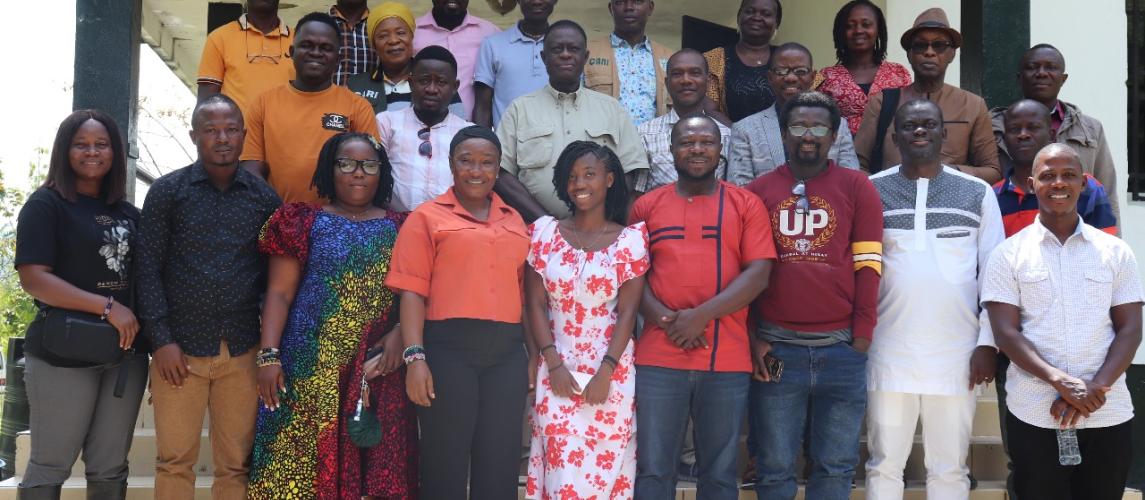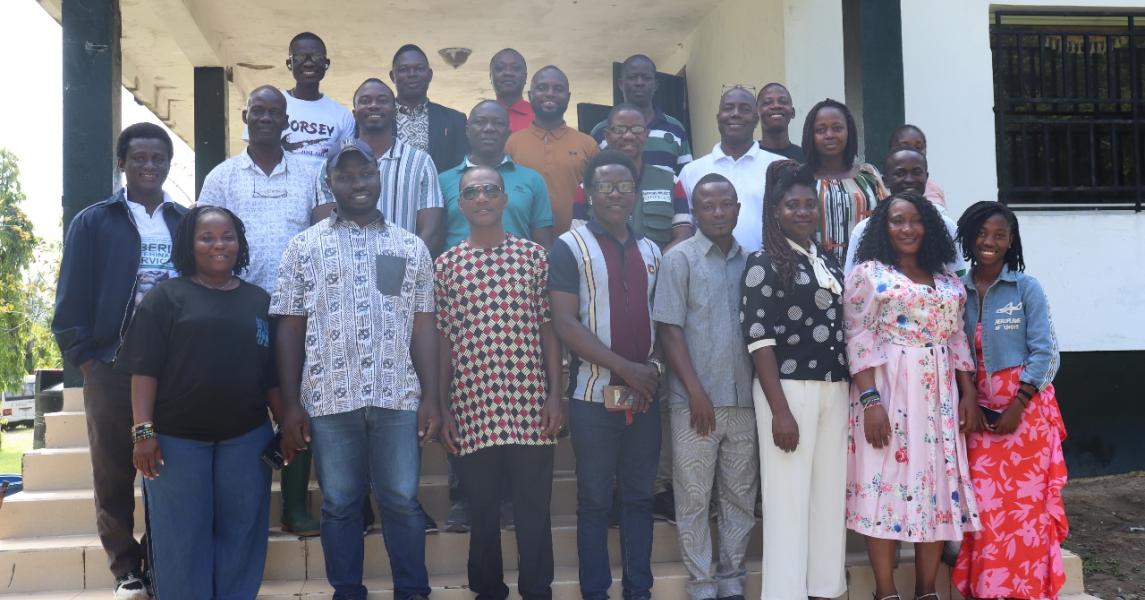
CARI and IAEA Advance Mutation Breeding and Speed Technologies to Strengthen Liberia’s Food Security
SUAKOKO, Bong County – A transformative initiative led by the Central Agricultural Research Institute (CARI), in partnership with the International Atomic Energy Agency (IAEA), is accelerating Liberia’s efforts to enhance food security through advanced crop breeding technologies.
As part of the Speed and Mutation Breeding Program, CARI hosted a national training course titled “The Application of Rapid Generation Advance Techniques in Rice Crops and Handling of Segregating Population in the Targeted Crops” and “The Application of Next Generation Sequencing (NGS) for Detection of Novel Induced Mutations in Stress Tolerant Mutant Rice (EVT2501590 & EVT2501594). The event called together 31 participants from key institutions, including the Ministry of Agriculture, Cuttington University, Tubman University, Nimba University, University of Liberia, CARI, and two international facilitators from IITA and IRRI.
Held from September 22–October 3, 2025, the training is facilitated by IRRI & IITA Scientists, Dr. Nasser Yao and Dr. Kayondo Siraj Ismail, and supported by the National Course Coordinator, Dr. James S. Dolo. The two-week training program blended theoretical lectures, hands-on sessions, and field visits to the research fields.
The course covered a broad spectrum of topics essential to rice crop development and breeding innovation, including: Understanding rice as a staple crop and its global significance, Principles and applications of Rapid Generation Advance (RGA) and biotechnology tools, and the Development of segregating and non-segregating rice populations. Others include advanced breeding strategies, such as MAGIC and NAM populations, Demand-led breeding to meet market and consumer needs, Inclusive breeding practices that integrate gender and diversity, and Product profiling for tailored crop trait development. The use of the R-Studio statistical package is also employed for data analysis and reporting.
Dr. Arthur Bob Karnuah, Director General of CARI, welcomed participants, emphasizing the importance of collaboration in strengthening research methodologies across Liberia’s academic institutions. “We depend on you to go and develop your own laboratory research. The IAEA is very impressed with the progress in Liberia,” Dr. Karnuah stated.
Dr. George Tee Forpoh, Dean of Agriculture at Cuttington University, praised the initiative and encouraged participants to apply the knowledge gained. Dr. Maustapha Gaye, AfricaRice Country Representative, highlighted Liberia’s post-conflict progress and urged international experts to support national rebuilding efforts.
Dr. James S. Dolo, Project Lead and Head of CARI’s Crop Program and course coordinator, outlined the IAEA Technical Cooperation Projects LIR5003 (2022–2023) and LIR5004 (2024–2027), which aim to develop rice varieties with improved yields and resilience to environmental stresses. “This intervention has significantly contributed to AR&D capacity-building in Liberia and the diversification of the rice value chain,” Dr. Dolo noted.
IAEA expert Nasser Yao explained the genetic principles behind segregating and non-segregating populations, essential for understanding variation and selection in breeding programs.
Dr. Kayondo Siraj Ismail, Regional Cassava Molecular Breeder at the IITA East Africa Hub, delivered a presentation on the use of Next-Generation Sequencing (NGS) to identify novel mutations in rice varieties that exhibit tolerance to environmental stress. He emphasized the importance of adaptive research, which involves customizing breeding approaches to suit local agro-ecological conditions.
Dr. Ismail emphasized the importance of unlocking genetic variability, a crucial foundation for developing resilient crop varieties, through modern breeding techniques such as mutation breeding and distant hybridization. These methods, he noted, enable researchers to introduce new traits and improve crop performance in the face of climate change, pests, and other agricultural challenges. “Genetic variability is essential for developing varieties that withstand climatic extremes, pests, and meet consumer preferences,” Dr. Ismail stated.
Addressing participants, Dr. Dolo highlighted recent achievements, including a 2023 mutagenesis experiment conducted at the IAEA Laboratory in Seibersdorf on six Liberian rice varieties, three upland (LAC 23, Bold Grain, NERICA-4) and three lowland (NERICA-L-19, Suakoko-8, ARICA-2). M1 seeds were planted in 5m x 4m plots to observe mutation effects.
As of July 1, 2025, data from the M4 trials revealed high performances of the three lowland rice mutant lines, ARICA-2, Suakoko-8, and NERICA-L-19. Grain yield for all mutants was higher than the parental lines, and the days to maturity were also far earlier than the parental lines, indicating a significant reduction in the maturity times of the mutants. These results underscore the potential of mutation breeding to improve rice productivity and resilience in Liberia.

